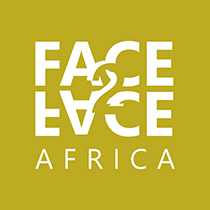History was made on Monday, July 23, 1900, when the first Pan African Conference was held in London’s Westminster Hall. The three-day event brought together about thirty leaders and activists across Africa, England, America and the West Indies, serving as a common ground for the start of a conversation on Africa and its future. From this conference began the widespread use of the word Pan-African, its course and objectives, especially in Africa.
London-based Barbadian lawyer and writer Henry Sylvester Williams, who organized the historic Pan African Conference, is to date credited with having coined the term Pan-African. He had become aware of the oppression of African Americans and had three years before the Pan African Conference founded the African Association, comprising continental and diaspora Africans.
One of the aims of the association was “to encourage a feeling of unity and to facilitate friendly intercourse among Africans in general.” Serving as a ground for educating African Diasporan activists about the issues affecting Africa and the need to free the continent, the association also hoped “to promote and protect the interests of all subjects claiming African descent”.
By 1900, the African Association was successful in bringing together a large community of Pan Africanists in the Diaspora, compelling Williams to organize the Pan African Congress. The conference made international headlines and caused tension among western colonizers. At that moment, it became clear that the birth of a generation interested in the freedom and development of Africa had been born. And it was all thanks to Williams, who was long forgotten after his death until recently.
Born in Barbados in 1867 — not Trinidad in 1869, as previously thought — Williams moved with his working-class parents to Trinidad, where he grew up in Arouca with five younger siblings. By 1887, Williams was appointed headmaster of a primary school while serving as the Registrar of Births and Deaths in South Trinidad. He moved to New York City in 1891, where he became aware of how African Americans were being oppressed, particularly those in the South.
After two years in the U.S., Williams left and settled in the province of Nova Scotia, Canada, where he enrolled for a law degree at Dalhousie University in Halifax, but he never finished the course. By 1896, Williams was in England. There, he worked as a lecturer for the Church of England Temperance Society, got married, and went back to school studying at Kings College London and Grays Inn for the bar.
Having become a lawyer, Williams started lecturing about Trinidad and questioning the tenets of the Crown Colony system, calling it heartless and racist. He became the first person of African descent to speak in the House of Commons when he led a delegation of Trinidadian lawyers to meet MPS. He also wrote to newspapers sharing the interest of the African continent and people of African descent.
On September 24, 1897, when he founded the African Association, many White people thought that the organization would only last for a few months, but it became stronger over the years, leading to the Pan African Conference. The conference, which had in attendance prominent people like W. E. B. Du Bois; Bishop Alexander Walters, a leader of the African Methodist Episcopal Zion Church in the United States and president of National Afro-American Council; and the Haitian Benito Sylvain, aide-de-camp to the Ethiopian emperor, would help spur the civil rights movement and anti-colonial activites.
Indeed, participants at the conference discussed the need for colonial governments to recognize the rights of the natives and the importance of preserving the Black identity. And it was from this meeting that the Pan-African Association was formed, with Williams becoming the first secretary of the association.
After the historic Pan African Conference in London, Williams did not stop at highlighting the conditions of people of African descent. That same year the conference was held, he attended the Anti-Slavery Congress in Paris and was also present at the annual meeting of the National Afro-American Council held in Philadelphia. As secretary of the Pan-African Association, he traveled to Jamaica, Trinidad and the U.S. to create branches of the association.
When he came back to London, he established a monthly journal called The Pan-African, but it only lasted for a few months. In 1903, he traveled to South Africa and became the first Black lawyer to practice in Cape Town. As he defended the interest of Africans under minority white rule, Europeans in the country tagged him as a dangerous person and that forced him to leave.
By 1905, Williams was back in London. He was voted on the St. Marylebone Borough Council in 1906, becoming one of the first Black people to hold public office in England. Two years later, Williams returned to Trinidad where he spent his last years as a lawyer while spreading the word about Africa. Before his death on March 26, 1911, he visited a few African countries, including Liberia, Guinea, and Sierra Leone, where he came face to face with the living conditions of Africans.
It is quite interesting how a Black man from a working-class background was able to achieve so much amid racial discrimination and oppression, historians say. From Trinidad through to his sojourn in North America, London, South Africa, and then back to London before visiting West Africa and finally returning to Trinidad, Williams’ works did inspire other Black greats as Marcus Garvey, Stokely Carmichael, George Padmore, and C. L. R. James, who fought for Black people’s rights.




